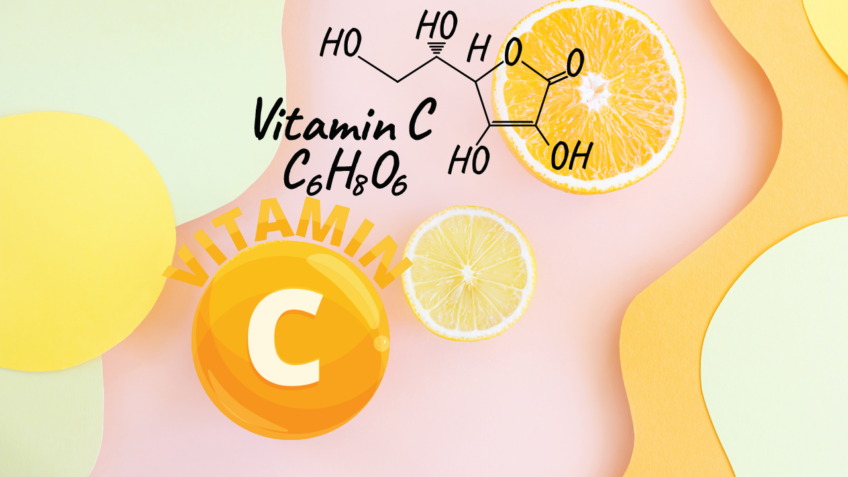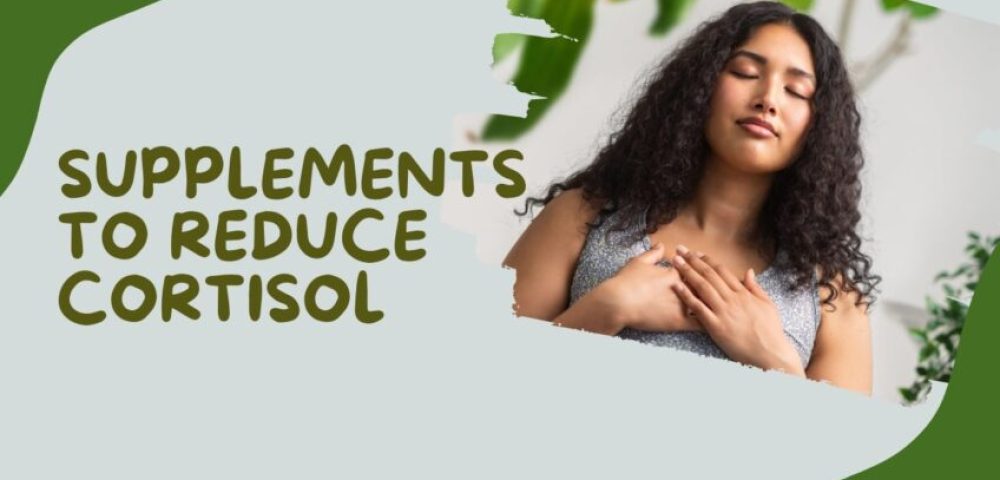If you’re anything like me, you’re always on the hunt for that next edge, that secret weapon to take your workouts to the next level. Well, today, we’re going to talk about something that might just be that secret weapon. No, it’s not a new protein powder or a killer new workout routine. It’s something you might not expect – cortisol.
Now, I know what you’re thinking. “Cortisol? Isn’t that the stress hormone? Why would I want to mess with that?” Well, you’re right. Cortisol is indeed the stress hormone. But it’s also so much more than that. It’s a crucial part of our body’s response to stress, helping us stay alert and ready to face whatever life throws at us. But like a protein shake left out in the sun, too much of a good thing can turn bad real quick.
When cortisol levels get too high, it can lead to all sorts of problems. We’re talking weight gain, sleep issues, even a weakened immune system. And let’s face it, none of us have time for that. We’ve got PRs to break and gains to make!
That’s where supplements come in. Just like your trusty pre-workout or BCAAs, the right supplements can help keep your cortisol levels in check, helping you stay healthy, recover faster, and get the most out of your workouts.
Page Contents
Understanding Cortisol
Alright, let’s get down to the nitty-gritty. Cortisol. It’s a word that gets thrown around a lot in the fitness world, but what exactly is it? Well, I’m glad you asked.
Cortisol is a steroid hormone that’s produced by our adrenal glands. Think of it as your body’s built-in alarm system. It’s what gets you up and moving when you’re under stress. Whether you’re pushing through that last rep or dealing with a tough day at work, cortisol is there, helping you power through.
But here’s the kicker. While cortisol is great for dealing with short-term stress, it’s not so great when it’s constantly elevated. Chronic stress can lead to high cortisol levels, which can throw your body out of whack. It’s like trying to lift heavy with bad form – it might work for a while, but eventually, you’re going to pay the price.
High cortisol levels can lead to a whole host of problems. We’re talking weight gain, trouble sleeping, even a higher risk of heart disease. And let’s be real, none of that sounds like a good time. It’s like showing up to the gym only to find out all the squat racks are taken. No thank you!
The Importance of Reducing High Cortisol Levels
Now, you might be thinking, “I’m a bodybuilder. I eat stress for breakfast. Why should I worry about cortisol?” Well, my friend, let me tell you, high cortisol levels are about as welcome as a skipped leg day in the world of bodybuilding.
When cortisol levels stay high for too long, it can lead to some serious health issues. It’s like overtraining – sure, you might feel like a beast pushing through workout after workout without rest, but eventually, your body is going to hit a wall.
High cortisol levels can lead to weight gain, especially around the belly. And I don’t know about you, but the only six-pack I’m interested in is the one on my abs. High cortisol can also mess with your sleep, and we all know how important rest is for recovery and growth. It’s like trying to build a house without laying the foundation first – it’s just not going to work.
But it’s not just about the physical effects. High cortisol can also mess with your mood, leading to feelings of anxiety and depression. And let’s be real, no one wants to feel like they’re stuck in a never-ending cardio session.
Natural Ways to Reduce Cortisol

So, we’ve established that high cortisol levels are about as welcome as a treadmill in a powerlifting gym. But what can we do about it? Well, there are a few natural ways to keep cortisol in check.
- Exercise: Now, I know what you’re thinking. “Exercise? Really? I thought you said cortisol was the stress hormone!” And you’re right. But here’s the thing – while exercise does temporarily increase cortisol levels, it also helps to reduce them over the long term. It’s like doing a heavy set of squats – it might be tough in the moment, but the long-term benefits are worth it.
- Diet: Eating a balanced diet can help keep your cortisol levels in check. That means plenty of fruits, vegetables, lean proteins, and whole grains. And yes, that might mean saying no to the occasional donut. But hey, we all have to make sacrifices for the sake of gains, right?
- Sleep: Getting enough quality sleep is crucial for keeping cortisol levels in check. So, make sure you’re getting your eight hours, folks. Think of it as a rest day for your hormones.
- Mindfulness Practices: like meditation and deep breathing can also help reduce cortisol. I know, I know, it sounds a bit woo-woo. But trust me, a little bit of zen can go a long way in the gym.
But sometimes, despite our best efforts, we need a little extra help. And that’s where supplements come in.
Understanding Supplements

Alright, let’s talk supplements. Now, if you’re anything like me, you’ve got a supplement stack that rivals the height of your dumbbell rack. But what exactly are supplements, and how can they help us manage cortisol?
Supplements are products designed to enhance your diet. They can include vitamins, minerals, herbs, amino acids, and enzymes. Think of them as your support team, helping you fill in the nutritional gaps and giving you that extra edge in the gym.
When it comes to managing cortisol, certain supplements can be a game-changer. They work by supporting your body’s natural stress response, helping to keep cortisol levels in check. It’s like having a spotter for your hormones – they’re there to help you when things get heavy.
But here’s the thing. Not all supplements are created equal. Just like you wouldn’t trust a spotter who skips leg day, you don’t want to trust your cortisol management to just any supplement. You want the best of the best.
And that’s what we’re going to talk about next. The best supplements for managing cortisol. So, grab your shaker bottle and let’s get to it.
Best 10 Supplements to Reduce Cortisol
Okay, folks, it’s time to talk about the heavy hitters – the top supplements for managing cortisol. Now, remember, I’m not just pulling these out of a gym bag. As a bodybuilder with a degree in health science, I’ve done my homework. So, let’s get to it.
(Note: For the purpose of this example, I’ll mention three supplements. You can replace these with the actual supplements you want to discuss.)
Ashwagandha
- What is it? Ashwagandha is a herb that’s been used in traditional medicine for centuries. It’s like the bench press of the supplement world – tried, true, and effective.
- How does it help? Ashwagandha is an adaptogen, which means it helps your body handle stress. It’s like a personal trainer for your stress response, helping you lift heavy without burning out.
- Any research to back it up? You bet. Studies have shown that Ashwagandha can help reduce cortisol levels and manage stress-related symptoms.
- Side effects? Generally, Ashwagandha is well-tolerated, but it’s always a good idea to check with your doctor before starting any new supplement.
Rhodiola Rosea
- What is it? Rhodiola Rosea is a plant that grows in cold, mountainous regions. It’s the mountain climber of the supplement world – tough, resilient, and ready to help you conquer any peak.
- How does it help? Like Ashwagandha, Rhodiola is an adaptogen. It helps your body adapt to stress, keeping your cortisol levels in check.
- Any research to back it up? Absolutely. Research has shown that Rhodiola can help reduce cortisol levels and improve symptoms of stress.
- Side effects? Rhodiola is generally safe, but it’s always best to check with your doctor before starting any new supplement.
Phosphatidylserine

- What is it? Phosphatidylserine is a type of fat compound found in our brain. Think of it as the protein shake for your neurons – it helps keep them strong and healthy.
- How does it help? Phosphatidylserine has been shown to help reduce cortisol levels and improve cognitive function.
- Any research to back it up? Indeed. Studies have shown that Phosphatidylserine can help reduce cortisol levels and improve exercise performance.
- Side effects? Phosphatidylserine is generally safe, but as always, check with your doctor before starting any new supplement.
Magnesium
- What is it? Magnesium is a mineral that’s crucial for many bodily functions, including nerve and muscle function and protein synthesis.
- How does it help? Magnesium has been shown to help regulate cortisol levels and improve the body’s response to stress.
- Any research to back it up? Yes, studies have shown that magnesium can help reduce cortisol levels and improve symptoms of stress.
- Side effects? Magnesium is generally safe, but taking too much can lead to digestive issues. As always, check with your doctor before starting any new supplement
Vitamin C

- What is it? Vitamin C is a vitamin that’s important for immune function, collagen production, and antioxidant protection.
- How does it help? Vitamin C has been shown to help reduce cortisol levels and improve the body’s response to stress.
- Any research to back it up? Yes, research has shown that vitamin C can help reduce cortisol levels and improve mood.
- Side effects? Vitamin C is generally safe, but taking too much can lead to digestive issues. As always, check with your doctor before starting any new supplement.
L-Theanine
- What is it? L-Theanine is an amino acid found in tea leaves.
- How does it help? L-Theanine has been shown to help reduce cortisol levels and promote relaxation without causing drowsiness.
- Any research to back it up? Yes, studies have shown that L-Theanine can help reduce cortisol levels and improve stress-related symptoms.
- Side effects? L-Theanine is generally safe, but as always, check with your doctor before starting any new supplement.
Remember, folks, supplements are just that – a supplement to a healthy lifestyle. They’re not a magic pill, but they can give you that extra edge when it comes to managing cortisol.
How to Choose the Right Supplement

So, we’ve talked about the top supplements for managing cortisol. But how do you choose the right one for you? Well, my friends, it’s not as simple as choosing between dumbbells and barbells. There are a few things you need to consider.
Your Health Status
Just like you wouldn’t start a new workout routine without considering your fitness level, you shouldn’t start a new supplement without considering your health status. If you have any underlying health conditions or are taking any medications, some supplements might not be right for you.
Quality
Not all supplements are created equal. Just like you wouldn’t skimp on quality when it comes to your gym gear, you shouldn’t skimp on quality when it comes to your supplements. Look for supplements that are third-party tested for purity and potency.
Dosage
Just like lifting, when it comes to supplements, more is not always better. Taking too much of a supplement can lead to side effects and may not provide any additional benefits. Always follow the recommended dosage on the label, or better yet, talk to your doctor.
Consultation with a Healthcare Provider
This is a big one, folks. Just like you wouldn’t try to deadlift twice your bodyweight without proper guidance, you shouldn’t start a new supplement regimen without talking to a healthcare provider. They can help you choose the right supplement and dosage for your needs.
Remember, supplements are a tool to help you reach your health and fitness goals. But they’re not a substitute for a healthy lifestyle. So, keep hitting the gym, eating right, and getting plenty of sleep. And let’s keep those cortisol levels in check, shall we?
FAQ
What are the symptoms of high cortisol levels?
Symptoms of high cortisol can include weight gain, particularly around the abdomen, fatigue, difficulty concentrating, and mood swings. High cortisol levels over a prolonged period can also lead to more serious health issues like hypertension, diabetes, and osteoporosis.
What are supplements and how can they help manage cortisol?
Supplements are products designed to enhance your diet and can include vitamins, minerals, herbs, amino acids, and enzymes. Certain supplements can support your body’s natural stress response, helping to keep cortisol levels in check.
Can I rely solely on supplements to manage my cortisol levels?
While supplements can be a helpful tool in managing cortisol levels, they should be used as part of a balanced lifestyle that includes regular exercise, a healthy diet, and good sleep hygiene.
Can high cortisol levels affect my performance in the gym?
Yes, high cortisol levels can affect your performance in the gym. Chronic high cortisol can lead to fatigue, muscle weakness, and difficulty concentrating, all of which can impact your workouts.
Conclusion
Well, folks, we’ve been on quite a journey, haven’t we? We’ve dived deep into the world of cortisol, explored the impact of high cortisol levels, and even discovered some top-notch supplements to help keep our cortisol in check. It’s been like a grueling workout session, but instead of leaving us wiped out, we’re walking away stronger and more informed.
Remember, managing cortisol is about more than just popping a few supplements. It’s about living a balanced lifestyle. It’s about hitting the gym, eating right, getting plenty of sleep, and yes, even a little bit of zen now and then. It’s about taking care of our bodies so we can keep pushing our limits, breaking our PRs, and making those gains.
So, here’s to you, my fellow fitness enthusiasts. Here’s to managing cortisol and making the most of our workouts. Here’s to our health, our strength, and our never-ending pursuit of gains. Keep lifting, keep learning, and keep striving for your best. After all, that’s what being a bodybuilder is all about.
Leo Green, the embodiment of a wellness guru at Fischer Institute, brings boundless expertise as a health expert and certified personal trainer. With his dynamic approach and unwavering dedication, Leo empowers individuals to embrace a balanced lifestyle, unlocking their full potential for optimal health and vitality.















